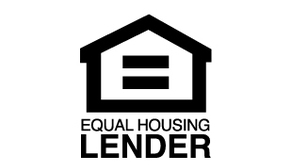Refinancing your home can save you thousands of dollars if you take your time and do your homework. Interest rates are currently very low, meaning that refinancing your mortgage to the lower rates available now can be easily worth your while.
Here, we’ll discuss the basic game plan for getting the best deal. The refinancing process is much like securing your original mortgage, so you’ll want to present the best case to your lending officer by making sure that your finances are in great shape. Secondly, you’ll want to compare the terms of the mortgage products available to you to select the best option. There are plenty of refinancing products out there that can save you quite a bit of money when you find the right fit. Knowing what to look out for will help to direct your search.
Why Should I Refinance Now?
Interest rates set by the Federal Open Market Committee (FOMC) are historically low, meaning that it’s an excellent time to borrow money. To help the economy bounce back from the global recession of 2008, rates have remained low, falling steadily throughout last year. Mortgage rates typically follow these trends, and some predict that they will hold steady for the first half of 2020.
Consequently, smart refinancing choices can easily save you thousands of dollars over your original repayment. When you combine this market environment with the equity that you’ve hopefully built up as you’ve consistently repaid your mortgage loan, refinancing can be well worth the effort.
Refinance rates on popular mortgage products are at some of the lowest levels in the past decade and continue to fall. These numbers shown are the average refinance rates for several different conforming, government, and jumbo loans as of today. Interest rates on most refinance products continue to fall over last week’s average. Fixed rates and ARMs (adjustable rate mortgages) all follow that trend.
How Do I Secure The Best Refinance Rate?
Now that you’ve decided to refinance your home loan, you’ll begin the refinancing process, which is similar to applying for your original mortgage. Having excellent credit, lots of income, little debt and plenty of equity in your home can save you thousands.
To secure the best rate, you’ll want to prepare your finances to make the best case to your lender. Proving that you will continue to be a reasonable credit risk for the lender will get you the best rate.
1. Get your credit score in good shape. Lenders will review your credit score to assess how well you manage your money and how consistently you repay your bills. Just like with a conventional mortgage, the higher your score, the lower your interest rate. If there are errors, dispute them.
2. Minimize your debt. Lenders consider your debt-to-income ratio, so pay down loan balances, like auto or personal loans, if you have them. This ratio shows lenders that you have sufficient income to repay your mortgage. The lower your debt-to-income ratio, the lower your interest rates tend to be.
3. Maximize your home equity. Your lender views the equity that you’ve built as your investment in your home. It provides added comfort for your lender that you have a stake in this transaction. The more equity that you have in your home, the less risky it is for your lender to refinance for you, and the lower your rates tend to be. Depending on how long you’ve been in your home, and how much cash you have on hand, it may be worthwhile to boost your equity. If, for example, you’ve almost achieved 20% equity, and you can afford to pay your loan down to that level, you can avoid paying PMI (private mortgage insurance) premiums on your loan, which will save a pretty penny.
If you find yourself in a situation where you have poor credit or little equity in your home, it is still possible to save money by refinancing with a government loan, like an FHA or VA loan, if you qualify. Depending on the terms of your original mortgage, those rates may be low enough right now to justify refinancing.
Choose The Best Loan
Once you’ve got your affairs in order, choosing the best loan can make all of the difference. Consider what your goals are and select the best mortgage product to fit that bill. Understanding what drives each of the terms of your loan can help you find the best deal.
Consider the loan duration. Mortgages are usually issued for 10, 20, or 30-year terms. When you refinance, better interest rates are available for shorter-term loans because the lender is exposed to risk for a shorter time. Make sure that you can handle the monthly payment—it may be more than what you paid on a 30-year loan, but know that the shorter repayment period combined with these lower interest rates can quickly save you thousands, depending on your loan amount and other factors.
Consider how long you plan to stay in your home. This answer will have a significant impact on how you approach refinancing. Whether you plan to live in your house for the rest of your life or plan to relocate and sell within a few years can make a difference when you look for the best rate.
For a couple planning to sell their home within five years, for example, it might be prudent to consider an adjustable-rate mortgage. An ARM will generally begin with an attractive initial interest rate. The 5/1 ARM, for example, will guarantee your interest rate for the first five years of your mortgage. Every year after that, the interest rate may go up or down, depending on what the market dictates. If you only plan to keep your home for just a few years, taking the risk on an ARM will give you the benefit of a lower rate. If you plan to sell before the rate changes, you will protect yourself from future fluctuations and take advantage of a great rate.
On the other hand, if you plan to stay in your home for a long time, it makes sense to consider a few options that may save you money over the longer term, like buying discount points. Buying discount points is essentially paying upfront to lower your interest payments over the life of your loan. Under certain circumstances, this can be cost-effective.
Additionally, the longer you plan to keep your loan, the more sense it makes to pay for your closing costs out-of-pocket if you can. Otherwise, you’ll pay the interest on these new closing costs for the duration of the loan.
Research Rates
Make sure to get multiple quotes from several different sources. It’s a good idea to start with your existing lender, but compare that loan estimate to ones from your local bank or credit union against ones from independent loan originators. The rates and terms can vary significantly, so pay attention.
When you find a loan that suits your needs, request a mortgage rate lock to prevent your rates from rising while your loan is being processed, which can take a few weeks.
Just like with mortgages, pay attention to the APR, which includes the interest rate and all of your fees, like loan origination costs and closing costs, etc. The APR gives you a more comprehensive picture of how much refinancing will cost.
Conclusion
Thanks to historically low-interest rates, it is a great time to consider refinancing your mortgage. Refinancing your home loan now can translate into thousands of dollars in savings over the life of your loan.
To maximize your potential savings, pay attention to your finances. You want to show your lender that ultimately, you’ll pay back the loan on time. The best way to make this case is by showing that you’re financially responsible. A higher credit score, low debt-to-income ratio, and a large amount of equity all serve to increase your lender’s comfort and result in lower interest rates.
Once you’ve been approved for refinancing, consider which loan terms will serve you best. If you plan to move soon, consider an ARM so that you can capitalize on those favourable introductory rates. If this is your forever home, think about paying down points so that you pay less interest over time. If the numbers make sense, you might choose a shorter-term loan to take advantage of tremendous savings in interest payments, too.
Regardless of what you decide works best for your situation, we at A and N Mortgage can help you secure some of the best mortgage rates in Chicago as you consider your refinancing options.
A and N Mortgage Services Inc, a mortgage banker in Chicago, IL provides you with high-quality home loan programs, including FHA home loans, tailored to fit your unique situation with some of the most competitive rates in the nation. Whether you are a first-time homebuyer, relocating to a new job, or buying an investment property, our expert team will help you use your new mortgage as a smart financial tool.








